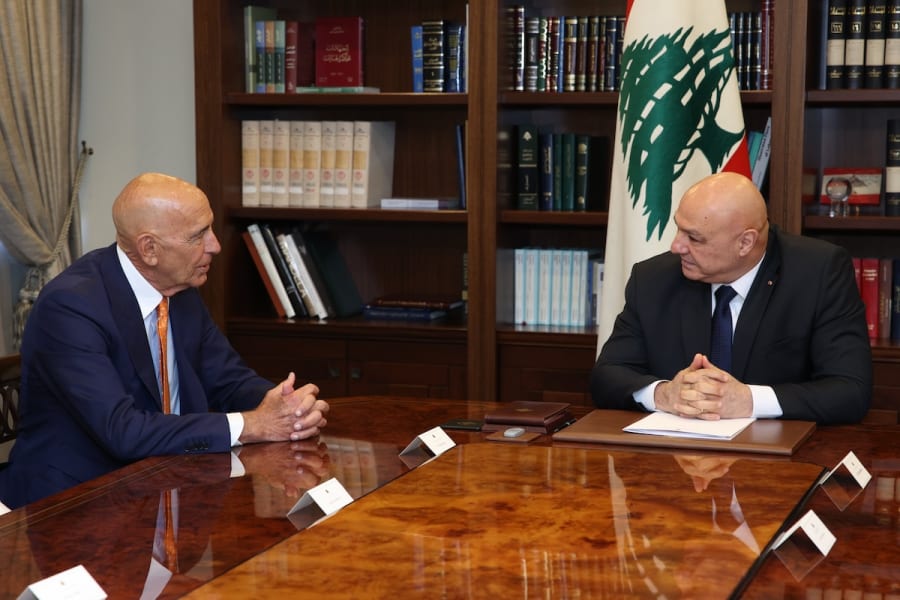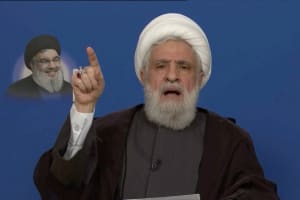US increases pressure on Lebanon to disarm Hezbollah, sets it as condition for IDF withdrawal
Gulf states join in sanctioning Hezbollah financial institution used to create separate economy

The administration of U.S. President Donald Trump is reportedly increasing pressure on the Lebanese government to formally commit to disarming Hezbollah, apparently making it a condition for resuming talks on halting Israeli military operations in Lebanese territory, according to Lebanese media reports.
The Lebanese news site The National reported that the Lebanese Cabinet will hold formal discussions around the disarmament of Hezbollah next Tuesday, and Lebanese President Joseph Aoun is expected to address the topic during a speech this Friday.
U.S. Ambassador to Turkey Tom Barrack, who has served as the de facto envoy to Lebanon, called on the government of Lebanon to act on its promise to disarm the terror group.
"The credibility of Lebanon’s government rests on its ability to match principle with practice," Barrack wrote on 𝕏 on Sunday.
"As its leaders have said repeatedly, it is critical that ‘the state has a monopoly on arms.’ As long as Hezbollah retains arms, words will not suffice,” he continued. “The government and Hezbollah need to fully commit and act now in order to not consign the Lebanese people to the stumbling status quo.”
The United States had previously presented a roadmap for the withdrawal of IDF troops from southern Lebanon and an end to Israeli airstrikes, in exchange for the disarmament of Hezbollah within a four month period. The Shiite militant group, which also operates a political party within the Lebanese parliament, rejected the U.S. proposal outright, labeling it a “surrender.”
The current leader of Hezbollah, Naim Qassem stated, “We are a people who do not surrender,” in his response to the proposal.
According to the latest reports, Ambassador Barrack will not return to Lebanon without a formal commitment from the government to disarm Hezbollah. He has offered the prospect of Western and Gulf support for Lebanon’s struggling economy as an incentive for cooperation.
“Saudi Arabia, Qatar, and now the UAE are coming in and saying, ‘If we can get to where everybody can just calm down, we will help redevelop that portion of Lebanon,’ which is huge,” Barrack recently told reporters.
He said the Gulf states are waiting for Hezbollah to be disarmed first.
The Iranian proxy group, originally founded to oppose Israel’s presence in southern Lebanon following Israeli efforts to counter Palestinian terror groups in the area, has been under increasing pressure.
Hezbollah has established both a parallel governance system in the areas it occupies and an international financial network to fund its operations against Israel.
However, that financial network has come under pressure, both from within Lebanon and internationally.
Lebanon's central bank, the Banque Du Liban, recently banned all financial institutions in the country from having any dealings with Al-Qard al-Hasan, a Hezbollah-controlled financial entity used to avoid existing international sanctions on the group and its assets.
Now, according to a report in Asharq Al-Awsat, the country of Kuwait has also imposed sanctions on Al-Qard al-Hassan.

The All Israel News Staff is a team of journalists in Israel.
You might also like to read this:
















